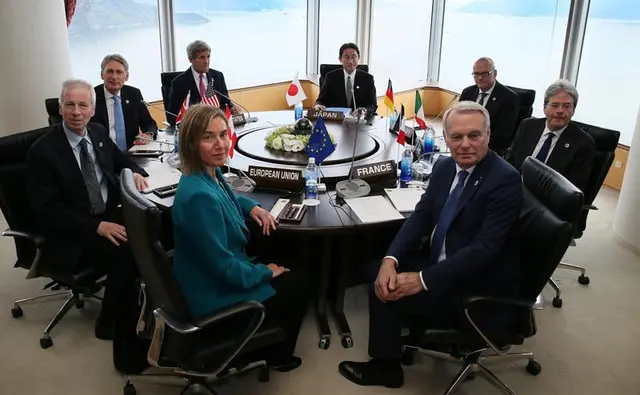The two-day G7 Foreign Ministers' Meeting closed here on Monday, with the foreign ministers of the seven industrialized countries issuing a joint communique, reaching consensus on a variety of global and regional issues including terrorism, refugees, and the DPRK nuclear problem.
Countering terrorism was placed ahead of other challenges in the communique. The communique condemned recent terrorist attacks in Turkey, Belgium and other regions and said a concrete G7 action plan on countering terrorism would be adopted at the G7 Ise-Shima Summit in May.
The communique also condemned "in the strongest terms" the nuclear test and missile launches by the Democratic People's Republic of Korea(DPRK), and demanded the DPRK not to conduct any further nuclear tests or launches that use ballistic missile technology, nor engage in any other destabilizing or provocative actions.
Regarding the issue of refugees, the communique said the flow of refugees, irregular migrants and internally displaced persons is at the highest level since WWII and requires a decisive response by the international community.
The communique also addressed the issues of Iraq, Syria, Libya as well as climate change, anti-corruption, counter-narcotics, global health, among others.
Along with the communique, the G7 foreign ministers also issued two statements calling for nuclear disarmament and no-proliferation, one of which is also called the Hiroshima Declaration.
In the Hiroshima Declaration, the G7 foreign ministers reaffirmed their "commitment to seeking a safer world for all and to creating the conditions for a world without nuclear weapons."
G7 Foreign Ministers' Meeting is the first of a series of ministerial talks leading up to the G7 summit to be held in Mie Prefecture in May. Enditem
 简体中文
简体中文

